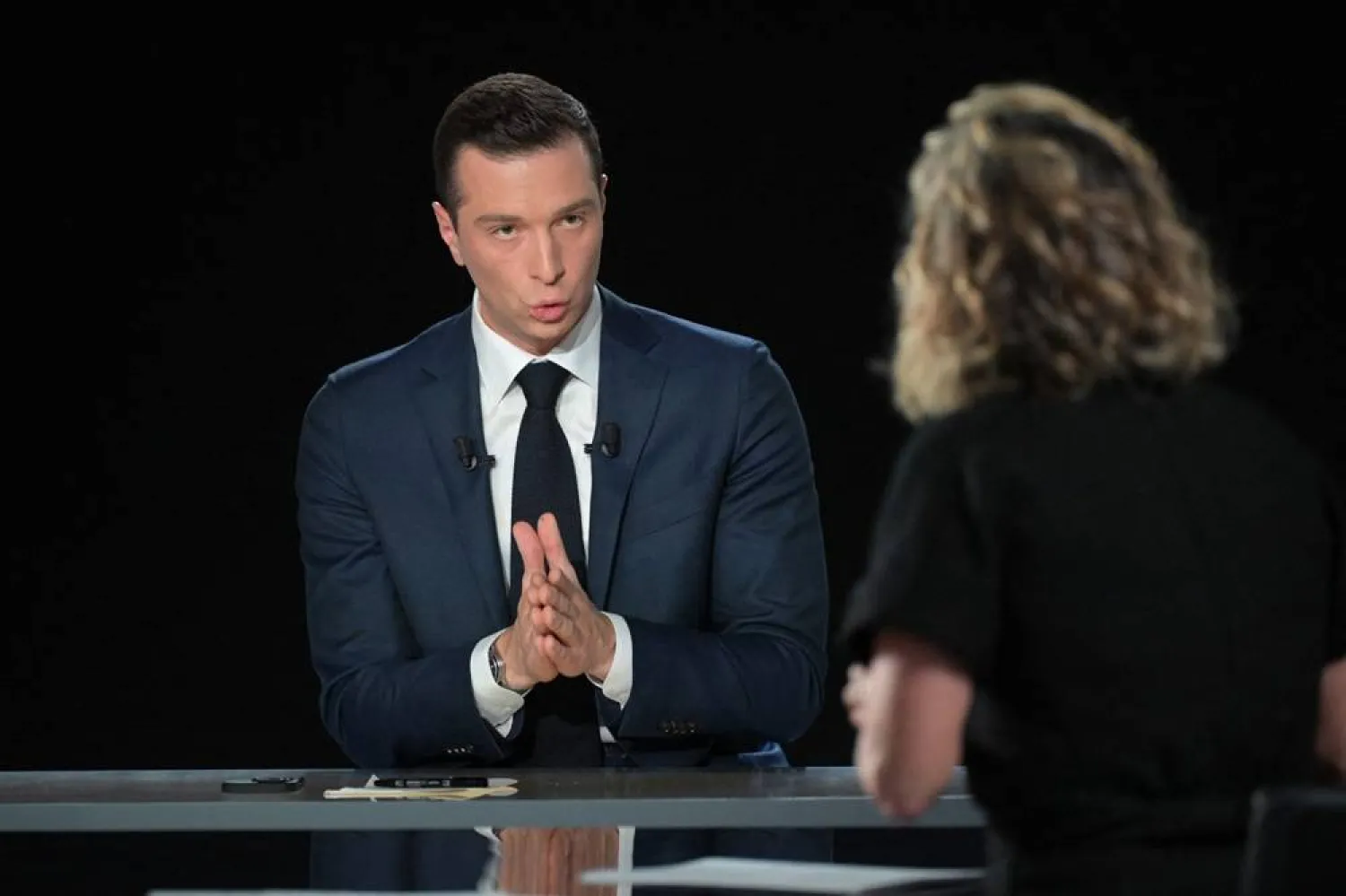At just 28 years old, Jordan Bardella has helped make the far-right National Rally the strongest political force in France. And now he could become the country's youngest prime minister.
After voters propelled Marine Le Pen’s National Rally to a strong lead in the first round of snap legislative elections on June 30, Bardella turned to rallying supporters to hand their party an absolute majority in the decisive round on Sunday. That would allow the anti-immigration, nationalist party to run the government, with Bardella at the helm.
Who is the National Rally president?
When Bardella replaced his mentor, Marine Le Pen, in 2022 at the helm of France’s leading far-right party, he became the first person without the Le Pen name to lead it since its founding a half-century ago.
His selection marked a symbolic changing of the guard. It was part of Le Pen’s decadelong effort to rebrand her party, with its history of racism, and remove the stigma of antisemitism that clung to it in order to broaden its base. She has notably distanced herself from her now-ostracized father, Jean-Marie Le Pen, who co-founded the party, then called the National Front, and who has been repeatedly convicted of hate speech.
Bardella is part of a generation of young people who joined the party under Marine Le Pen in the 2010s but likely wouldn't have done so under her father.
Since joining at age 17, he has risen quickly through the ranks, serving as party spokesperson and president of its youth wing, before being appointed vice president and becoming the second-youngest member of the European Parliament in history, in 2019.
“Jordan Bardella is the creation of Marine Le Pen,” said Cécile Alduy, a Stanford University professor of French politics and literature, and an expert on the far right. “He has been made by her and is extremely loyal.”
On the campaign trail, Le Pen and Bardella have presented themselves as American-style running mates, with Le Pen vying for the presidency while pushing him to be prime minister, Alduy said. “They are completely in line politically."
How did he become the movement’s poster child?
It wasn’t only having a different last name that made Bardella an attractive prospect for a party seeking to widen its appeal beyond its traditionally older, rural voter base.
Bardella was born in the north Parisian suburb of Seine-Saint-Denis in 1995 to parents of Italian origin, with Algerian roots on his father’s side — and far from seeking to deny these roots, he has used them to soften the tone (if not the content) of his party’s anti-immigration stance and its hostility to France’s Muslim community.
Although Bardella attended a semi-private Catholic school and his father was fairly well-off, party-sanctioned accounts have stressed his upbringing in a rundown housing project beset by poverty and drugs. Never having finished university, Bardella’s relatively modest background set him apart from the establishment.
What’s more, he could tell people directly — and crucially young voters — about it. With over 1.7 million followers on TikTok and 750,000 on Instagram, Bardella has found an audience for his slick social media content, which ranges from more traditional campaign material to videos mocking Macron and seemingly candid glimpses into the life of the National Rally’s would-be prime minister.
With a neat, clean-shaven look and social media savvy, he has posed for selfies with screaming fans. While his rhetoric is strong on hot-button issues like immigration — “France is disappearing” is his tagline — he has been relatively blurry on specifics.
What is he proposing for France?
It was Bardella who in a post on X called on Macron to dissolve the parliament and call early elections after the president’s centrist group suffered a crushing defeat by the National Rally at European elections in June.
When Macron did just that, Bardella, often wearing a suit and tie, hit the campaign trail, toning down his popstar image to seem more statesman-like despite his lack of experience in government.
In recent months, the National Rally has softened some of its most controversial positions, including pedaling back some of its proposals for more public spending and protectionist economic policies, and taking France out of NATO’s strategic military command.
Laying out the party's new program, Bardella said that as prime minister he would promote law and order, tighter regulation of migration and restricting certain social benefits, such as housing, to French citizens only. He said that dual citizens would be barred from some specific key jobs, such as state employees in the defense and security field.
He promised to cut taxes on fuel, gas and electricity, and pledged a rollback of Macron’s pension changes. His law-and-order minded government would also extend to the nation’s public schools, extending the ban on cellphones to high schools.
Rivals say his policies could do lasting damage to the French economy and violate human rights.
On the international front, Bardella has aimed to counter allegations that Le Pen’s party has long been friendly toward Russia and President Vladimir Putin. He said he regards Russia as “a multidimensional threat both for France and Europe,” and said he would be “extremely vigilant” of any Russian attempts to interfere with French interests.
Although he supports continued deliveries of French weaponry to Ukraine, he would not send French troops to help the country defend itself. He would also not allow sending long-range missiles capable of striking targets within Russia.
For voters with low incomes or who feel left out of economic successes in Paris or the globalized economy, Bardella offers an appealing choice, Alduy said.
“The feeling of vulnerability people have to factors that are beyond their control, calls for a radical change in the minds of many voters,” she said. “He has a clean slate and comes with no baggage of the past.”












